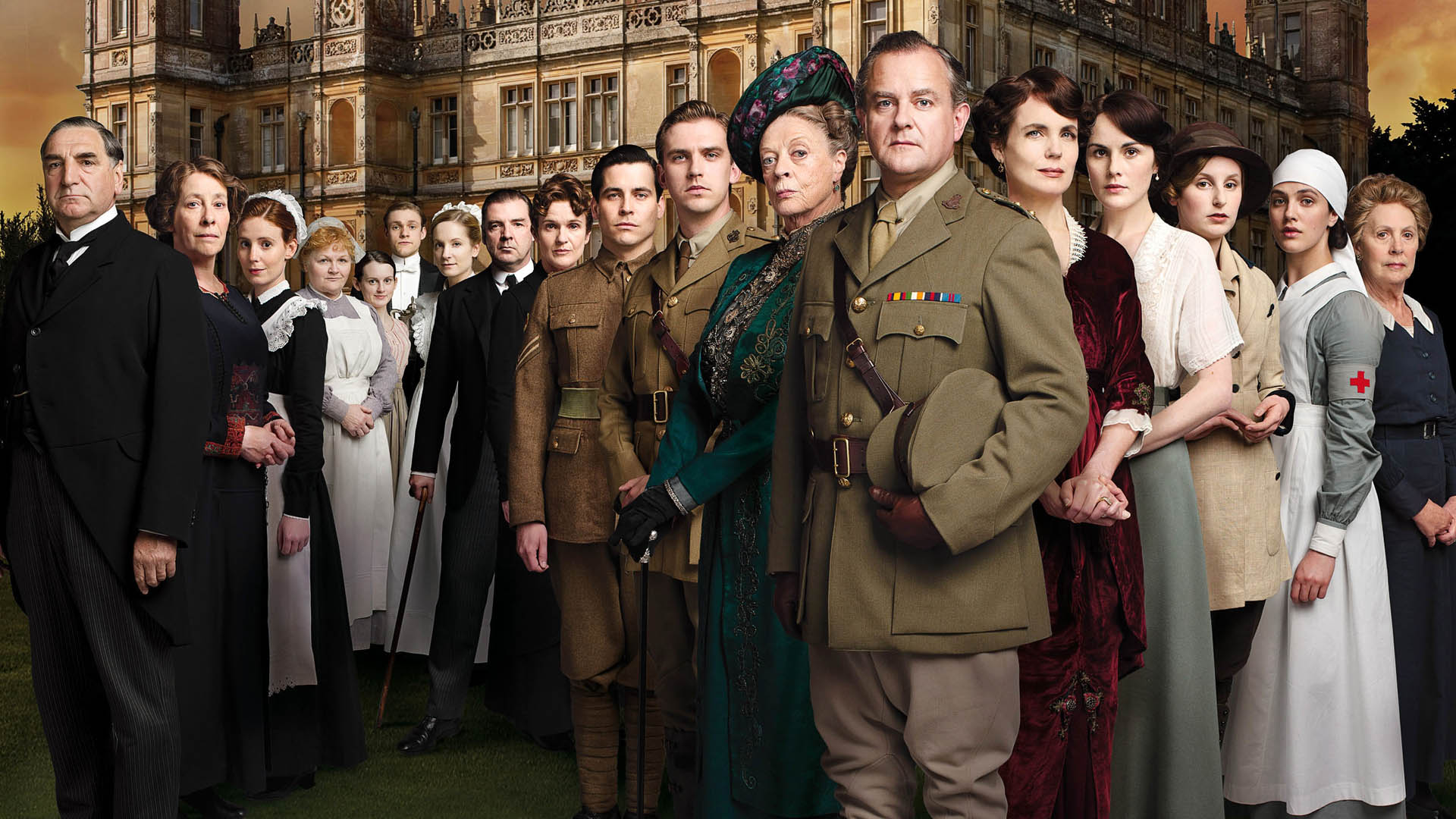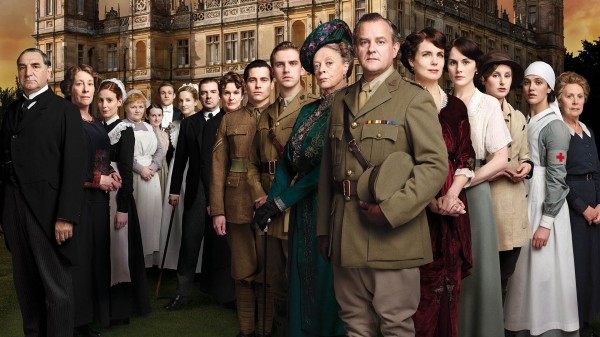I never got around to seeing Gosford Park, despite the rave reviews, and I can’t really remember Brideshead Revisited although I do recall it featured tweed rather heavily. Upstairs and Downstairs was on the second or third run before I got to watch Bodie and Doyle’s boss from The Professionals silently pouring sherry for people in tuxedoes in large overly-decorated rooms and then gruffly telling the staff off in the kitchen (which is somewhere between half and two-thirds of what these period dramas seem to consist of). The two I do remember which aired on NZ television are The Duchess of Duke Street (about a woman running a hotel in Edwardian London) and The Onedin Line (of which the theme tune and the character of Captain Baines was most memorable – or rather the old man who always shouted “Cap’n Baines! Cap’n Baines!” was most memorable in the same way that Jonesy yelling “Mr Mannering! Mr Mannering! Don’t panic!” was more memorable than Mr Mannering was on Dad’s Army). My efforts at persevering with the current iteration of the British costume drama, Dowton Abbey (Prime TV, Mondays 8:30pm), have so far met with the same mix of incredulity and indifference as the rest.
How could a heady mix of class division, politics and history not appeal? Perhaps because it is somewhere between a fashion parade and a soap opera where you already know the outcome of the world events involved? Perhaps aristocrats of a bygone era prattling on, playing cards, shooting pheasants and being attended to by an underclass is just too foreign a concept for my generation – a repellant concept rejected by the settlers who came to this colony to escape from that predetermination. Maybe that has something to do with it?
In parts it runs like a play – a melodrama – with drawing room settings and conversations between pairs of people. In other parts it takes more of a quick tempo as the plots weave together across the lives of the aristocrats and their obsequious minions and then into action. But mainly words. Not many words often, and well spoken they will be, but just words. Dialogue is King in this castle with fashion the Queen. Not that the speech is perfect. Maggie Smith looks old enough to have been around the 1920s so she can pretty much improvise her way through splendidly as the prickly dowager, but some of the others’ vernacular is strikingly modern. There are bound to be inaccuracies. I found it odd, for example, that there seems to be a smoking ban in place both inside and outside of the estate when of course the men of Britain at least were puffing away on anything that could be stuffed into a pipe or rolled into a cigarette between the wars.
The sub-plot guaranteed in any British period drama is the Americans. Those simply dreadful Americans. The British don’t seem to have gotten over losing that particular set of colonies and they tend to rehash the cultural differences (that is to say the extent to which Americans are rude, cultureless arseholes) given half a chance. They even made a period drama about Mr Selfridge and his department store on the basis it would be a rich vein of Yank-bashing. The Grantham whanau at the Downton whare in this week’s episode were intwined in American intrigue – meaning another chance to slap the Americans for not being forelock-tugging medievalists like God and the Queen had intended.
It is the social distinctions, stratification, religious domination and conservatism of the time that makes for such great fodder – as it is in such contrast to our liberal beliefs and laws of today. Bastard children are normal now, abortion is legal, white and black kissing in public isn’t going to start a three-day riot and banning legislation, and the Catholics were hated – but not for being a gang of pederasts – just for the Pope not giving Henry VIII an annulment. We think of the people of the not too distant past as semi-barborous. It is quite probable if an audience from that time period saw the show it would be awfully dull to them for the very same reasons it is of interest to a modern audience.
So we have a palace with wall-to-wall walnut and half the mahogany of British Honduras, servants everywhere (including staff who just open and close doors), bickering scullery maids, brooding valets, men in tweed who hurrumph around and then hurrumph off for weeks at sea just to get anywhere that’s not Britain, there’s a fleet of vintage cars, and some art deco frocks. And if it wasn’t for the rampant gossiping to and fro there would be no storylines at all. But why do we care what happens to these people trapped by history into their life roles? I’m not sure we do. Kiri Te Kanawa is due to play the Australian opera star, Nellie Melba in this season, but that doesn’t seem a compelling reason to start caring now. It is so remote. A saga far away in time and place, bound by the conventions of British period drama, holds limited appeal to the people of this time and place. I wonder what the half a million odd immigrants in the country who are not from the UK or from the Anglosphere would make of this cultural hangover?







What a great seri..es. for those peasants who remain uninitiated, grab the etire first season and watch it all in one go – you won’t regret it!
Hmm… ‘semi-barborous’… not heard of spell-check? You are supposed to be a professional commentator, no? The people of the period of the TV drama you are dissatisfied with valued clear writing. This mistake would have induced in them a wry laugh, thus defusing any worthwhile point you may have thought you were making. Do better in the New Year, eh?
Comments are closed.